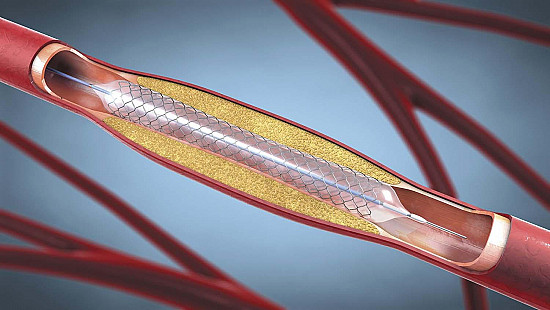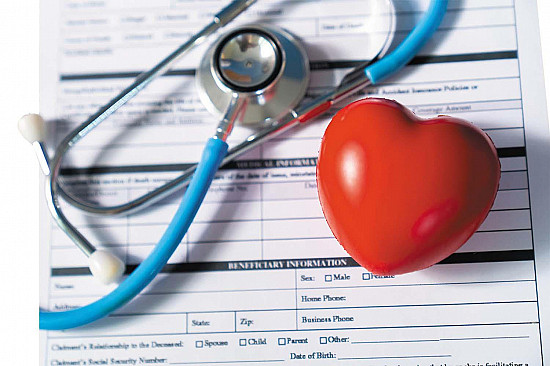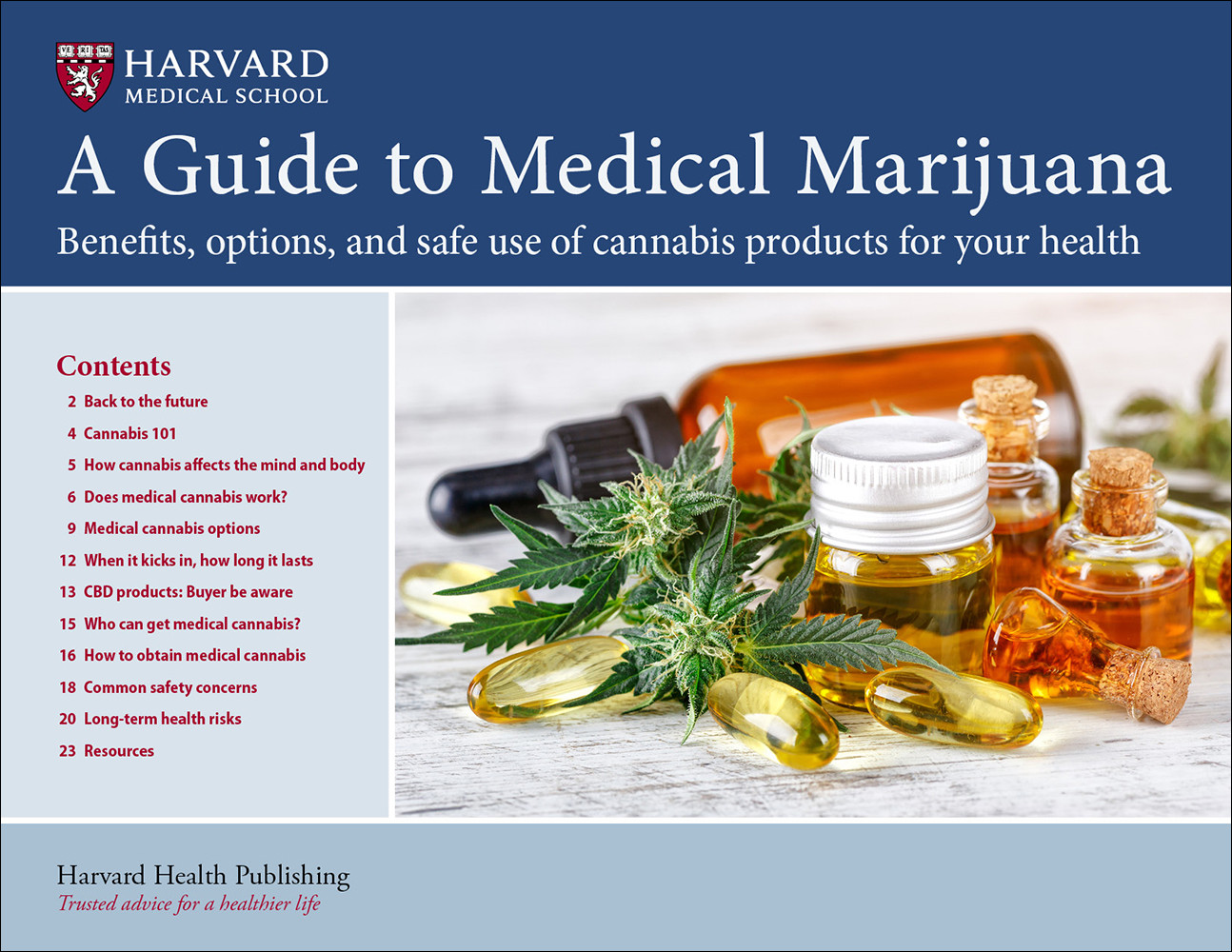Cannabis and heart concerns: A closer look
Smoking marijuana appears to be risky for your heart. What about cannabis gummies or other edibles?
- Reviewed by Christopher P. Cannon, MD, Editor in Chief, Harvard Heart Letter; Editorial Advisory Board Member, Harvard Health Publishing

The majority of Americans — about three in four — live in states where marijuana is legal for either medical or recreational purposes. Unsurprisingly, growing numbers of people, including older adults, now use cannabis in one form or another. (People often use the terms marijuana and cannabis interchangeably, but they’re not exactly synonymous; see “A cannabis primer.”)
According to the 2024 National Poll on Healthy Aging, one in eight people ages 50 and older said they used cannabis at least once a month. By far, the most commonly used products were edibles (74%). The top five reasons were to relax, help with sleep, feel good, treat pain, and help with mental health or mood.
If you’re in this group, you may wonder about recent research linking the drug to a higher risk of heart attack. But studying cannabis isn’t easy, and much of the information is on younger people, who tend to have the highest rates of cannabis use.
A cannabis primerMarijuana is the dried leaves, flowers, stems, and seeds of the Cannabis sativa plant. Cannabis refers to either marijuana or cannabinoids — any of more than 100 different chemical compounds found in marijuana. The two best known are
Levels of active components vary widely among different strains of marijuana, and the plant can be as much as 10 times more potent today than it was in the past. In addition, cannabis is now available in a wide array of forms. The three most common ways to use the drug are
|
The latest evidence
One study, published March 18, 2025, in JACC: Advances, relied on electronic medical record data from 2010 to 2018 on 4.6 million people ages 50 and younger. All were relatively healthy (they didn’t use tobacco and had normal blood pressure and cholesterol levels). Just 2% used cannabis, and their average age was 26. During the three-year follow-up, cannabis users were six times more likely to experience a heart attack compared with non-users. Still, the study had some limitations, including the lack of information about the dose and frequency of cannabis use. Also, the prevalence of both depressive episodes and obesity — two conditions linked to heart risk — was much higher among the cannabis users.
A 2024 study found an increased risk of heart attack and stroke among people who used cannabis just once a week, and those odds rose with more frequent use. Published in the Journal of the American Heart Association, the study analyzed data from nearly 435,000 adults ages 18 to 74. Of the 35,000 participants who said they used cannabis, about three-quarters reported smoking as the most common way they got high. Participants also may have vaped or consumed edibles.
Compared with people who never used cannabis, participants who did so once a week had a 3% higher risk of heart attack and a 5% higher risk of stroke during the four-year study period. But those who used cannabis daily faced 25% greater odds of a heart attack and were 42% likelier to have a stroke. The study was observational, meaning it can’t prove that cannabis use causes cardiovascular problems — just that an association exists.
Inhaling versus ingesting
Just like tobacco smoke, marijuana smoke contains chemical toxins that likely contribute to the drug’s potential cardiovascular damage. “When you smoke marijuana, you’re exposed to combustion products like carbon monoxide and polycyclic aromatic hydrocarbons,” says Dr. Peter Grinspoon, a primary care physician and cannabis specialist at Harvard-affiliated Massachusetts General Hospital. Smoking any substance promotes inflammation, which can harm the coronary arteries. “If you take a puff at a party once a week, that’s probably fairly low risk,” says Dr. Grinspoon. But smoking daily is very likely bad for your lungs and your heart, he says.
The cardiac effects of consuming cannabis in food or drinks are less well understood. But if you stick to smaller doses, it’s unlikely to cause problems, says Dr. Grinspoon. If you want to try cannabis gummies to help you sleep or treat minor aches and pains, start low and go slow. “Start with just half of a 5-milligram gummy to see how it affects you,” says Dr. Grinspoon. Cannabis tinctures — which are given in tiny drops under the tongue — make it easier to slowly ramp up your dose to get the desired effect. At most dispensaries, you can get a tincture with a 4:1 ratio of CBD to THC. Start with a 2-milligram dose of THC, increasing the dose by a milligram every few nights until you get the desired effect. If you take too much all at once, you may end up having a panic attack, which can cause a pounding heart or palpitations, Dr. Grinspoon cautions.
No drug is perfectly safe, and you have to consider the possible benefits and harms of cannabis in context. As Dr. Grinspoon points out, cannabis gummies are arguably safer than zolpidem (Ambien), a popular prescription insomnia treatment with side effects that include daytime drowsiness, dizziness, and nausea, as well as chest pain and a racing heart. Treating mild to moderate pain is also challenging, since nonsteroidal anti-inflammatory drugs (NSAIDs) have their own heart issues (see “When you take these popular pain relievers, proceed with caution” in the December 2020 Heart Letter).
Stuck in the weeds: The challenges of cannabis researchUnder federal law, cannabis is a Schedule I substance, meaning it has “no currently accepted medical use and a high potential for abuse.” That designation means it’s hard for researchers to do clinical trials, which require navigating approvals through local, state, and federal agencies. Other problems include access to enough high-quality product (which must be sourced from the federal government) and creating a believable placebo for study participants. As a result, most of the available data are from observational studies that rely on people to report their marijuana use. Frequency and dosage levels are hard to assess with any accuracy, especially among people who use the drug recreationally. And levels of active components vary widely among different strains of marijuana. |
Take-home advice
Don’t smoke cannabis, especially if you have heart disease. If you use cannabis edibles, purchase products only from a regulated dispensary and ask for a certificate of analysis, which summarizes independent tests of potency and contaminant levels in products. Take only as needed to relieve symptoms, using the lowest possible dose.
Image: © skodonnell/Getty Images
About the Author

Julie Corliss, Executive Editor, Harvard Heart Letter
About the Reviewer

Christopher P. Cannon, MD, Editor in Chief, Harvard Heart Letter; Editorial Advisory Board Member, Harvard Health Publishing
Disclaimer:
As a service to our readers, Harvard Health Publishing provides access to our library of archived content. Please note the date of last review or update on all articles.
No content on this site, regardless of date, should ever be used as a substitute for direct medical advice from your doctor or other qualified clinician.
















